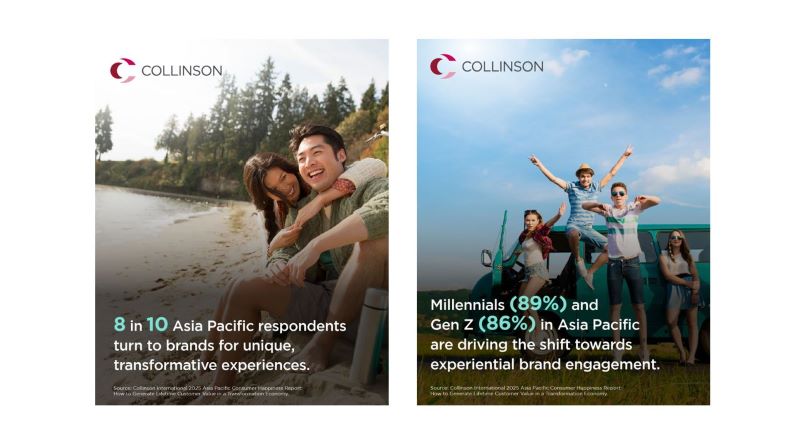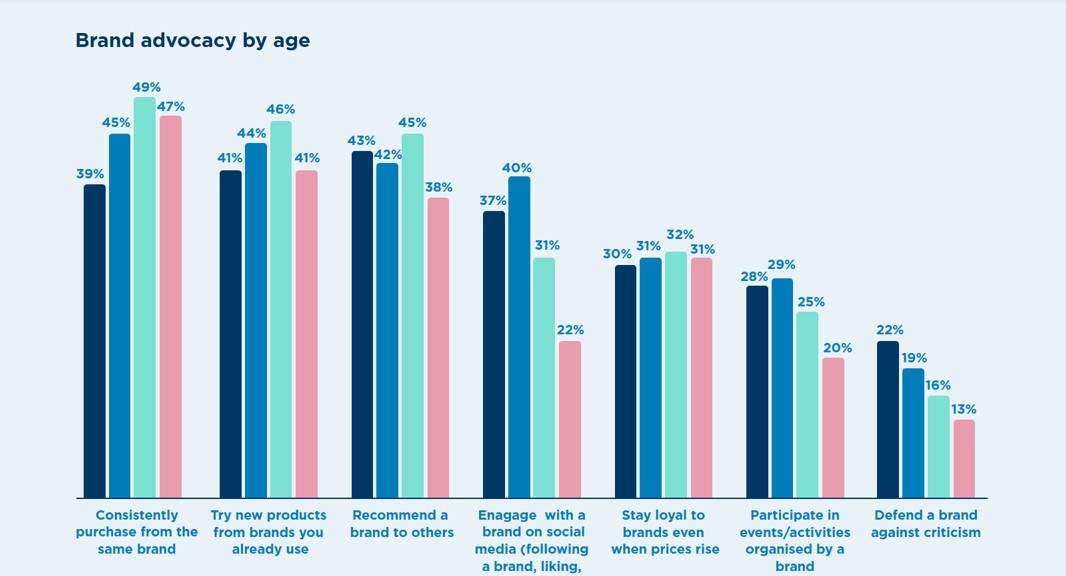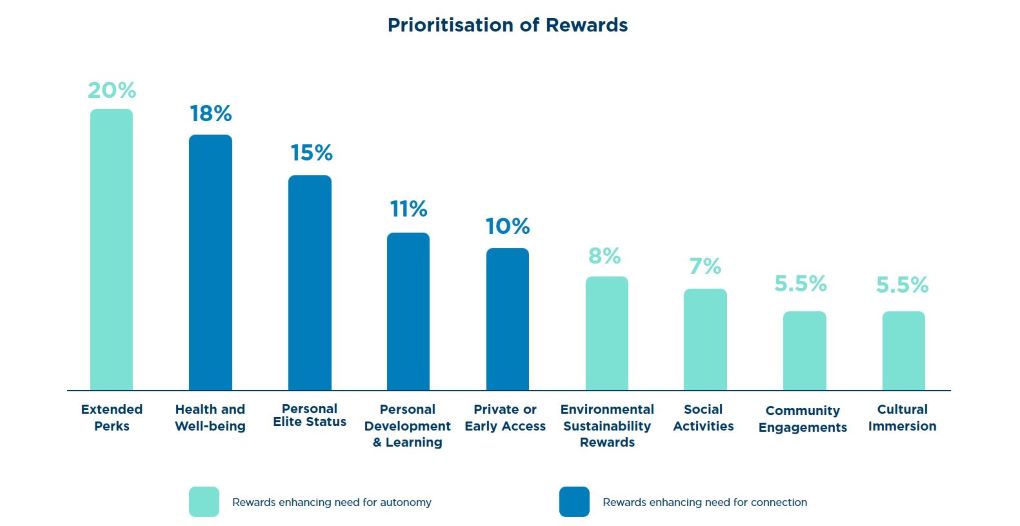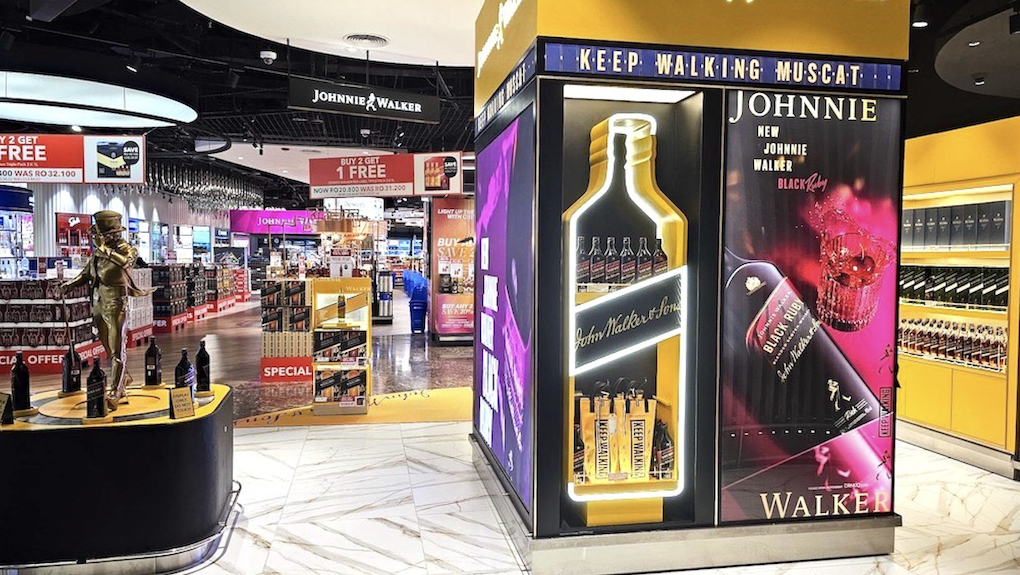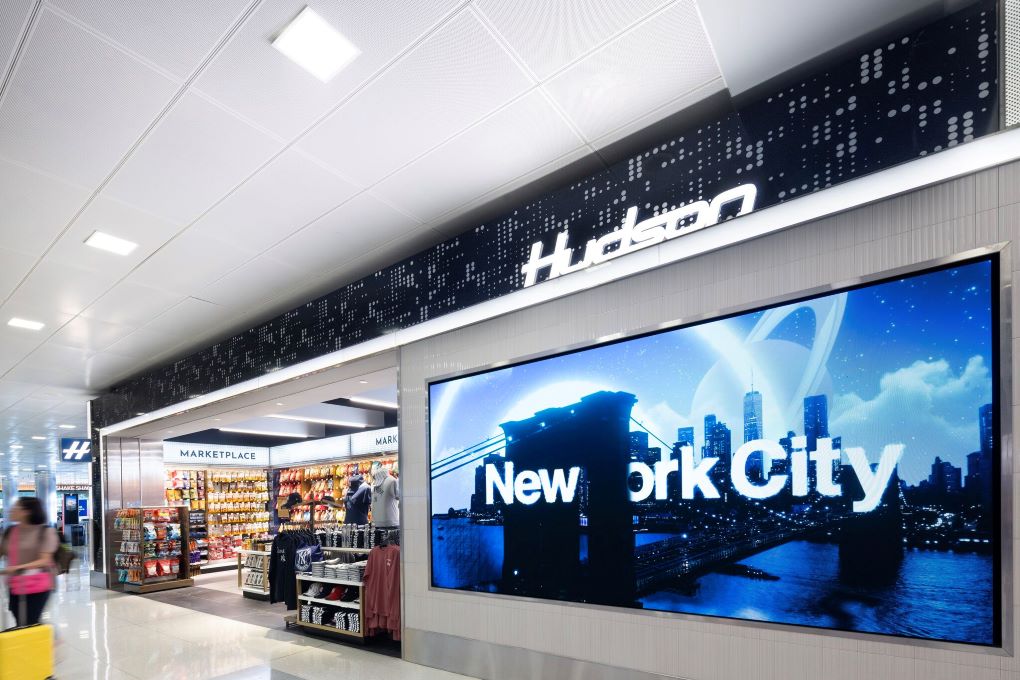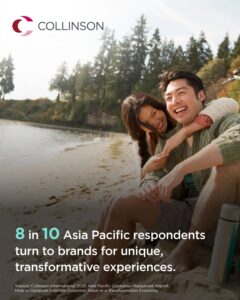
ASIA PACIFIC. Collinson, a global leader in airport experiences, loyalty and customer engagement solutions, has spotlighted the growing influence of brands in driving consumer happiness, particularly as customers increasingly seek experiences that deliver lasting value.
The findings were based on its research titled ‘2025 Asia Pacific Consumer Happiness Report: How to Generate Lifetime Customer Value in a Transformation Economy’.
The study, conducted in partnership with renowned behavioural psychologist Dr William von Hippel, involved 4,000 respondents across eight markets in the region.
The report highlights a shift in consumer expectations, with happiness now a key priority in the modern economy.
It reveals how brands can drive deeper engagement by offering access to transformative experiences, as more consumers seek value through loyalty rewards and benefits.
Collinson International Vice President of Business Solutions for Asia Pacific Rohan Bhalla noted that consumer satisfaction is continuing to evolve, shaped by changing expectations and priorities.
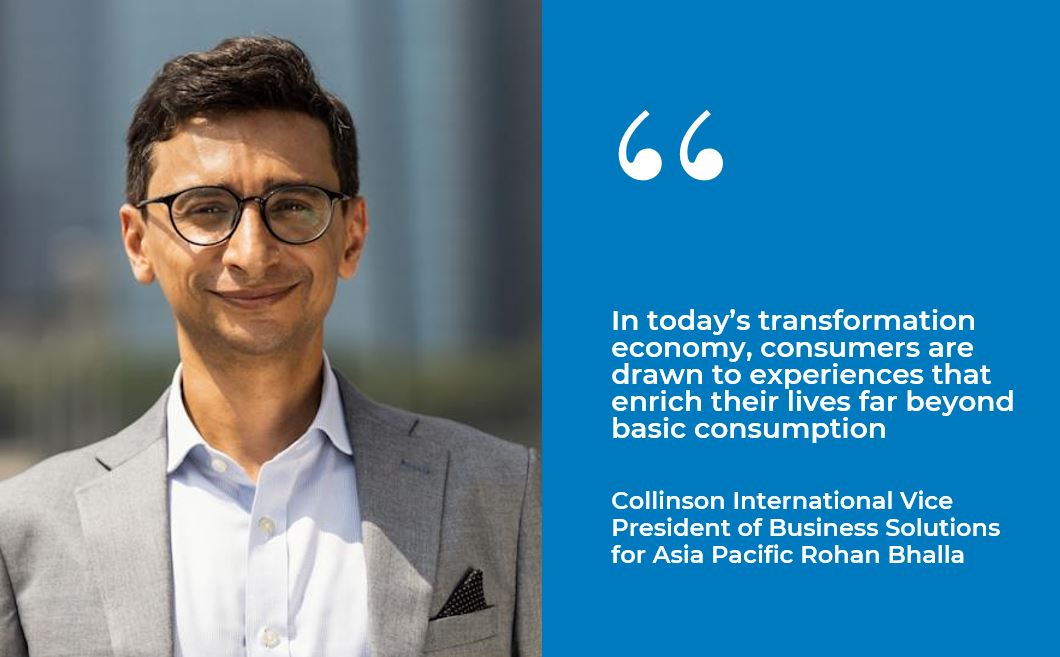
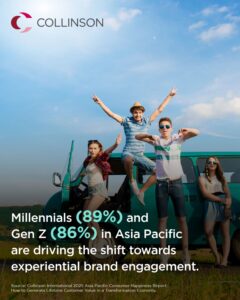 He said, “In today’s transformation economy, consumers are drawn to experiences that enrich their lives far beyond basic consumption – experiences that nurture connection, inspire personal growth and help bridge the gap between the world they live in and their aspirations.
He said, “In today’s transformation economy, consumers are drawn to experiences that enrich their lives far beyond basic consumption – experiences that nurture connection, inspire personal growth and help bridge the gap between the world they live in and their aspirations.
“This transcends rational rewards or simple engagement, delivering true meaningful moments — whether it is travelling to see their favourite band perform live or attending a global sports tournament.”
This trend is already taking shape across the region, where 81% of respondents rely on brand rewards that offer distinctive, exclusive experiences.
This preference is most noticeable among Younger Millennials (89%) and Gen Z (86%), who have increasingly favoured experiential engagement in recent years.
In APAC, 66% of those surveyed expressed satisfaction with the rewards and benefits offered by brands.
Happiness levels were highest among Millennials (72%), with Gen Z (67%), Gen X (65%) and Boomers (56%) following closely, reinforcing the role of brands in elevating consumer satisfaction.
The study suggests how brands can enhance emotional resonance, brand affinity and enduring loyalty by enabling consumers to access experiences that are otherwise inaccessible.
Happiness is the “new brand currency”
The survey demonstrates how a brand’s ability to contribute to customer happiness leads to increased levels of intentional and positive engagement. In APAC, this is reflected in consumer behaviours such as repeat purchases (46%), trying new products from familiar brands (43%) and recommending those brands to others (42%).
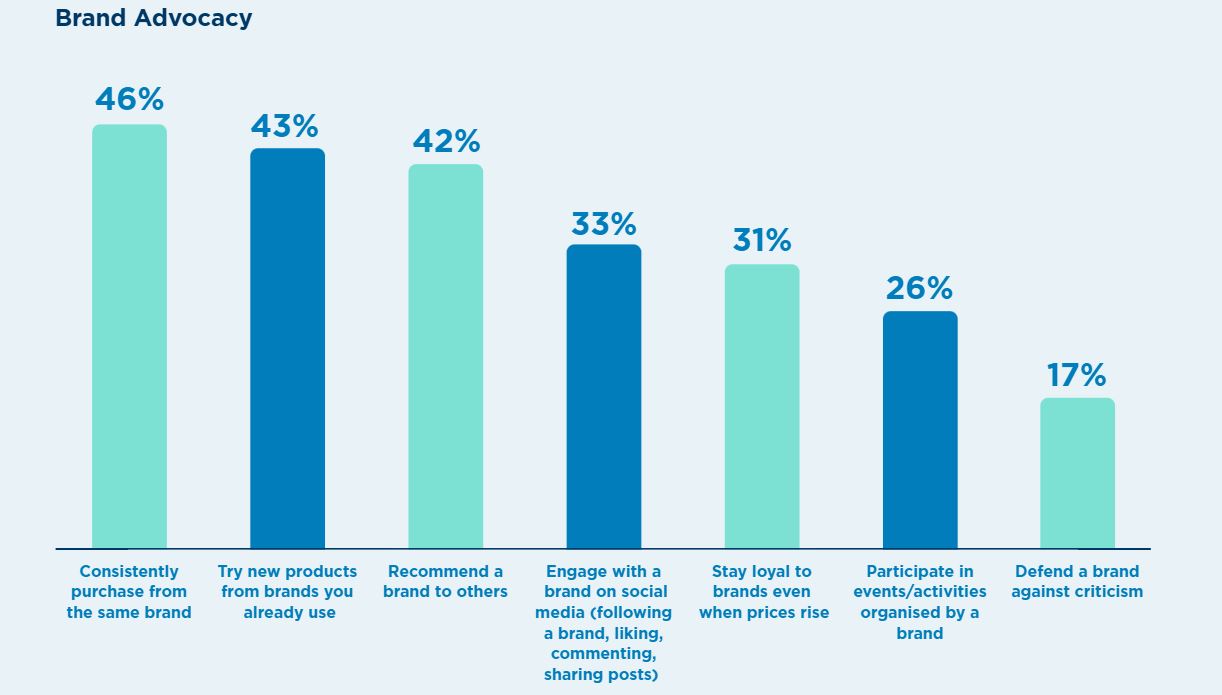
This pattern, however, differs by generation. Older consumers, particularly Gen X (49%) and Boomers (47%), show stronger brand loyalty through consistent purchasing.
Unlike their older counterparts, younger consumers are more likely to express brand loyalty through engagement beyond purchases, with 40% of Millennials and 37% of Gen Z interacting with brands on social media, compared to 31% of Gen X and 22% of Boomers.
The study underscores Gen Z’s stronger emotional connection to brands, noting they are more likely than any other generation to defend a brand when it faces criticism.
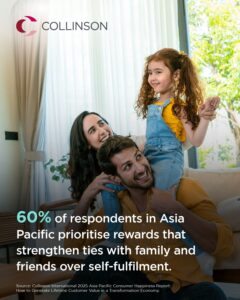 Why connection and self-fulfilment matter
Why connection and self-fulfilment matter
As outlined in his recent work, The Social Paradox, Dr William von Hippel explained, “Connection is the innate human need to bond with others, belong to groups and form meaningful relationships.
“Autonomy refers to the need to make one’s own choices and pursue individual goals for self-fulfilment and development. At its core, consumer happiness is shaped by a balancing of these basic yet fundamentally opposing needs.”
Respondents strongly recognised the role of brand rewards in enhancing connection and self-fulfilment – two elements that contribute to their overall sense of happiness.
Among APAC respondents, the three most valued rewards were extended perks for family and friends (20%), health and well-being benefits (18%), and personal elite status (15%).
Another notable trend among consumers surveyed is a preference for rewards that foster connection rather than autonomy, as 60% favour benefits that deepen family and friendship relations over those focused on personal fulfilment.
This preference is most evident among older consumers, with 69% of Boomers in APAC valuing rewards that enhance connection over self-fulfilment, compared to just 56% of Gen Z.
Dr von Hippel attributes this trend to different life stages, with younger people focusing on self-development before turning their attention to relationships later in life.
Brand engagement and loyalty in the age of purpose
As consumer priorities shift, brands are encouraged to address consumers’ deeper needs, such as connection and personal fulfilment, to remain relevant and strengthen loyalty in the transformation economy.
Bhalla concluded, “To truly achieve success in the transformation economy, brands must become catalysts of consumer happiness.
“This means moving beyond traditional loyalty strategies to deliver unique experiences that not only resonate with the distinct needs of every segment and market, but also bring greater value and enrich customer lives.”
Responding to increased travel demand in Asia, Collinson International expanded its regional network by +16% between May 2024 and May 2025, with nearly 750 Priority Pass locations currently available in the region and over 1,700 airport lounges and travel experiences worldwide. ✈
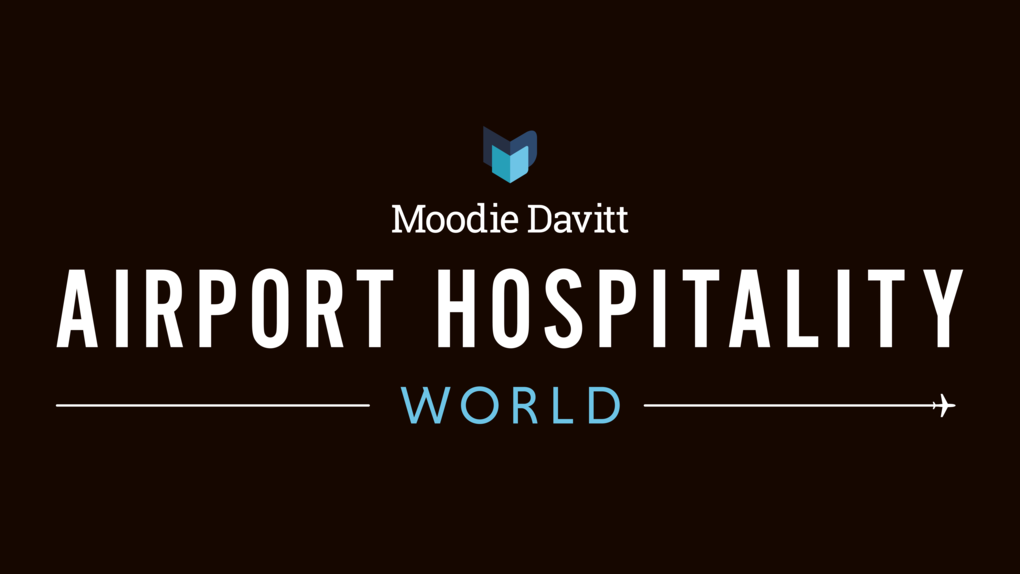 The Moodie Davitt Report is delighted to announce Airport Hospitality World, the latest edition to its wide-ranging, market-leading travel retail and airport non-aeronautical revenues publishing and event portfolio. Airport Hospitality World will cover all forms of airport lounges across international and domestic terminals, including various definitions globally as follows:
Plus other hospitality-related platforms:
Excitingly, the long-established Airport Food & Beverage (FAB) + Hospitality Conference & Awards will embrace Airport Hospitality World from the 2026 edition – the event’s 15th anniversary. The event will take on an extended form, featuring an exhibition and the ultimate one-stop airport hospitality and food & beverage conference and awards platform. |





